Films with theme "Documentary films about sports", sorted by revenue
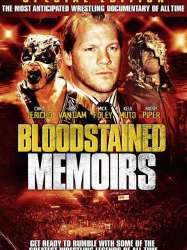
Bloodstained Memoirs (2009)
Origin USA
Genres Documentary, Historical
Themes Seafaring films, Sports films, Transport films, Documentary films about sports, Professional wrestling documentary films
Actors Chris Jericho, Mick Foley
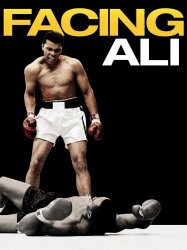
Facing Ali (2009)
, 1h40Origin USA
Genres Documentary, Action, Adventure
Themes Sports films, Martial arts films, Boxing films, Documentary films about sports
Actors Howard Cosell, MalcolmX
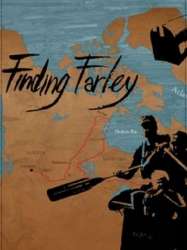
Finding Farley (2009)
, 1h2Origin Canada
Genres Documentary
Themes Films about writers, Environmental films, Seafaring films, Sports films, Transport films, Documentary films about sports, Documentary films about environmental issues, Documentaire sur une personnalité, Documentary films about technology, Documentary films about nature
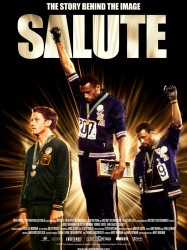
Salute (2008)
Directed by Matt Norman
Genres Documentary
Themes Sports films, Documentary films about sports, Films about the Olympic Games, Documentary films about historical events
The film provides an insight into an incident at the 1968 Summer Olympics which saw two United States athletes, Tommie Smith and John Carlos, give the black power salute from the victory dais after the 200 metres final. The film focuses on the third man on the dias, silver medal winner Peter Norman, who showed his support for Smith and Carlos by donning an "Olympic Project for Human Rights" (OPHR) badge on his way to the podium. It was also Norman who suggested to Smith and Carlos that they share the black gloves used in their salute, after Carlos had left his gloves in the Olympic Village. This is the reason for Smith raising his right fist, while Carlos raised his left. Asked later about his support of Smith and Carlos' cause by the world's press, Norman said he opposed his country's government's White Australia policy.

Fire Talker (2009)
Genres Biography, Documentary
Themes Seafaring films, Sports films, Transport films, Documentary films about sports, Association football films, Documentary films about law, Documentaire sur une personnalité
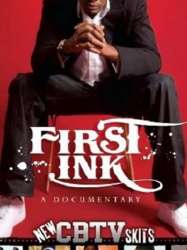
First Ink (2009)
Origin Canada
Genres Documentary
Themes Sports films, Basketball films, Documentary films about sports
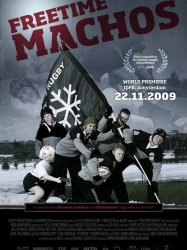
Freetime Machos (2010)
, 1h26Directed by Mika Ronkainen
Genres Documentary
Themes Sports films, Documentary films about sports
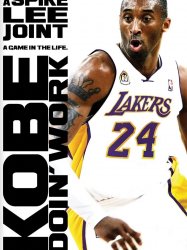
Kobe Doin' Work (2009)
, 1h23Directed by Spike Lee
Origin USA
Genres Documentary
Themes Sports films, Basketball films, Documentary films about sports, Documentaire sur une personnalité
Actors Kareem Abdul-Jabbar, Spike Lee
Kobe Doin’ Work is an 84-minute exploration of Kobe Bryant’s work ethic, his in game mentality, and his bluntness that makes Kobe a great competitor. [1] It focuses on Kobe Bryant during one day of the 2007–08 Los Angeles Lakers season. Bryant granted filmmaker Spike Lee and 30 cameras unprecedented access to his life for one day. Kobe: Doin' Work premiered on ESPN on May 16, 2009.The documentary follows Kobe Bryant during the 2007–08 NBA season throughout the April 13, 2008 game against the San Antonio Spurs.[2] The game in which Kobe was documented and given a microphone to capture live in game moments was a heated game with the rival Spurs. Kobe shot 6 of 14 from the field, scored 20 points, and played 32 minutes. The game was a crucial game in the end of the regular season, as the Los Angeles Lakers hoped to keep first place in the Western Conference with a record of 55-25. Spike Lee was interviewed asking why he chose Kobe Bryant to direct this documentary, in which Lee replied, "I'm a big basketball fan. It was obvious. He was having an MVP-type year, in which he did win the MVP. Also the Lakers looked like they were going to take it to the Finals. And I wanted them to beat the Celtics. I hate the Celtics. But the Celtics won. But I don't think I was taking a gamble by choosing Kobe." (Lee, NBA.com)3. Kobe agreed to let Lee microphone him during the game, in which he also played in the game. According to Spike Lee, "He (Kobe) said several times how much fun it was just doing it." (Lee, NBA.com)3. The 83-minute documentary ran on ESPN commercial free.[3] The documentary also focuses on Bryant and the team in huddles and during time-outs. The cameras also get full access of coach Phil Jackson in the locker room with the team during half-time.[4] Bryant provided the voiceover for the documentary on February 2, 2009, hours after he scored 61 points against the New York Knicks at Madison Square Garden, (then a single-game record at the arena, which has been broken since).[5] Spike Lee said that he was excited for Kobe to do the commentary following a game at Madison Square Garden, but no one expected a 61-point performance from Bryant. "I know that if he had a terrible game the commentary would not have been the same. Guaranteed. But Kobe said he made a point to make sure not to lose the game or he would hear it from me." (Lee, 8th paragraph)3. Kobe indeed said in an after game interview that he was going to give the game his all in order to show Spike Lee a thing or two about Bryant’s skills on the court against the Knicks. "On a lighter note, I'm going to review this documentary I'm doing with Spike Lee tonight after the game and I didn't feel like sitting next to him and hearing him talking trash about the Knicks, so that was added incentive as well. Seriously. He's going to get an earful tonight." (Bryant, 8th paragraph, ESPN.

My Run (2011)
, 1h25Origin USA
Genres Documentary
Themes Sports films, Athletics films, Documentary films about sports
My Run tells the true story of two journeys. The first, which began in 1984, opens the film when Terry Hitchcock's wife Sue dies of breast cancer. Only a few days later he loses his job. Suddenly, he finds himself alone with his three young children and no income.
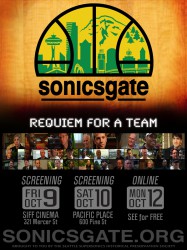 , 2h
, 2hOrigin USA
Genres Drama, Documentary
Themes Sports films, Basketball films, Documentary films about sports, Documentary films about cities
Actors Sherman Alexie, Ryan Stiles
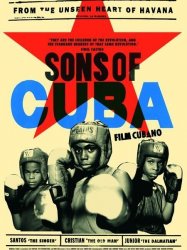
Sons of Cuba (2009)
, 1h28Origin Cuba
Genres Documentary
Themes Sports films, Martial arts films, Boxing films, Documentary films about sports

A Time for Champions (2009)
Genres Documentary
Themes Sports films, Documentary films about sports, Association football films

Waveriders (2008)
, 1h20Directed by Joel Conroy
Origin United-kingdom
Genres Thriller, Documentary
Themes Sports films, Surfing films, Documentary films about sports
Actors Cillian Murphy
Waveriders focuses on the Irish roots of surfing. The film covers the life of Irish-Hawaiian surfer George Freeth and his influence in popularizing surfing in California and his contributions to lifeguarding.

Athlete (2010)
, 1h35Origin USA
Genres Drama, Documentary
Themes Sports films, Athletics films, Documentary films about sports, Documentaire sur une personnalité, Films about disabilities
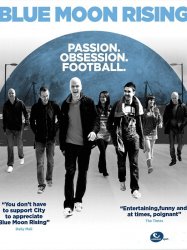
Blue Moon Rising (2010)
, 1h37Origin United-kingdom
Genres Documentary
Themes Sports films, Documentary films about sports, Association football films
The film follows Manchester City in the wake of the club's takeover by Sheikh Mansour through the 2009-2010 season, capturing their emotions in victory and defeat. Whilst the documentary will also give an "access all areas" view into Manchester City Football Club including footage from the dressing room, boardroom and players' homes such as Carlos Tevez with exclusive in-depth interviews from chairman Khaldoon Al Mubarak and manager Roberto Mancini.
 Connection
Connection